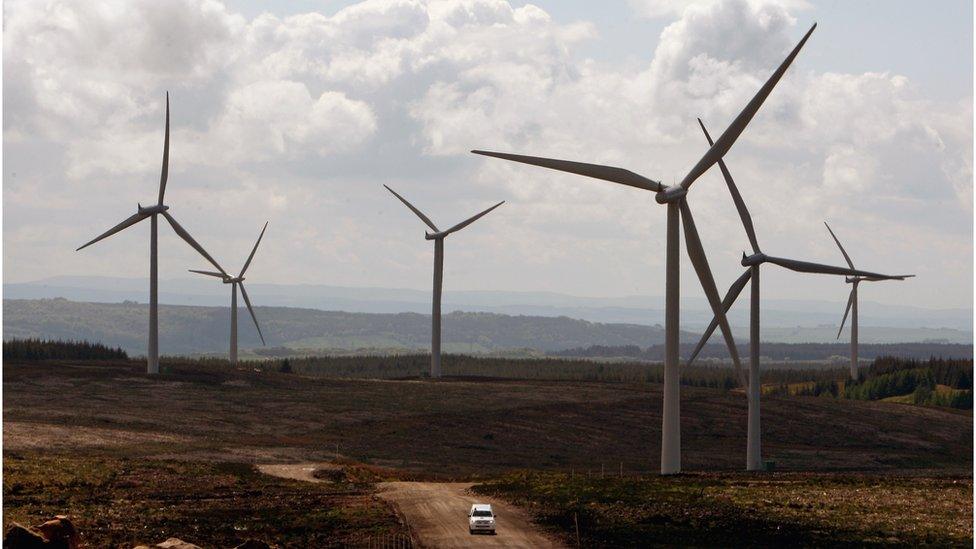Onshore wind 'to make comeback in UK'
- Published
- comments

The cheapest form of new power in the UK - onshore wind - is set to make a comeback, according to a government decision today.
Ministers previously blocked projects after complaints from local campaigners that they were a blot on the landscape.
The government responded by denying onshore wind the chance to bid for a price guarantee for the electricity they produce.
They also gave local protestors a definitive say in the planning process.
This meant it was virtually impossible for wind farms to gain permission.
Environmentalists said the decision was irrational, and today the government has opened the way for onshore wind farm developers to bid for price support.
In the long term, it should lead to cheaper electricity for consumers. Solar farms will be able to bid for price guarantees too.
But the government still wants local people to have a strong say in the decision where they are built. That means relatively few are expected in congested England.
In Scotland, though, Scottish Power is delighted. It has 1,000MW in the pipeline for wind and solar.
The small pressure group known as Possible has been pushing for a resurgence of onshore wind. It says: "After years of campaigning we can finally celebrate the UK's cheapest new energy source being brought in from the cold."
Onshore wind fell out of favour after Conservative activists complained about the visual impact and hum of wind farms in the countryside.
In sections of the media, the word "hated" became attached to the term wind farm - and most MPs believed they were deeply unpopular with the public.
In fact, the government's own surveys show over-whelming public support for onshore wind - albeit not always in the areas where it's been built.
Scottish Power said in future they would build solar, wind farms and batteries on the same site to maximise the output and minimise the disturbance.
Follow Roger on Twitter., external

